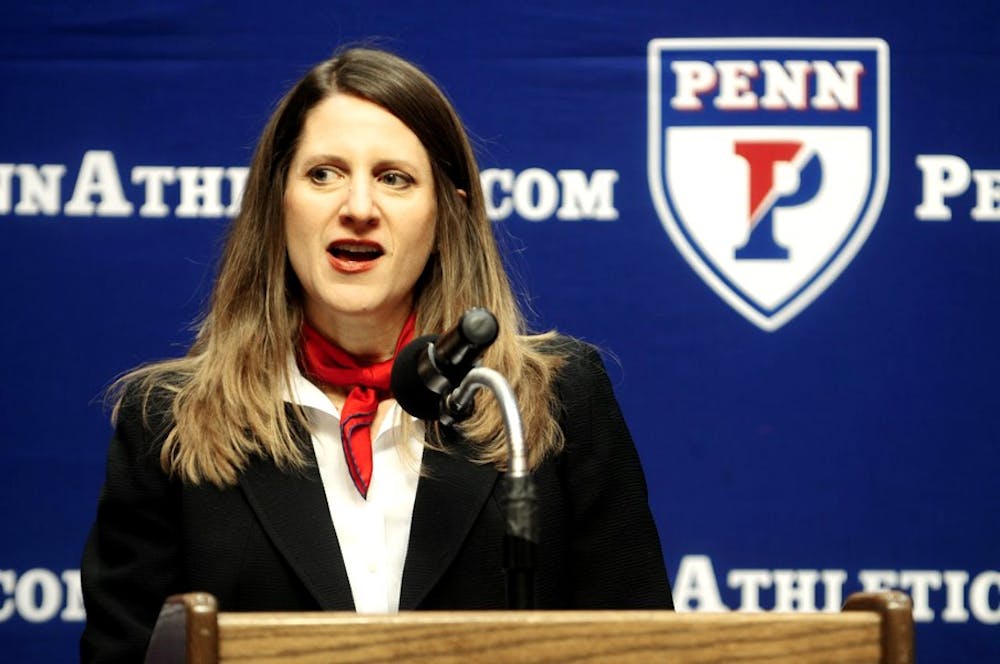
It was a tough winter for Penn and a long fall before that. But in the spring, the Quakers came into their own across all sports and found the success that we had long awaited.
There were the triumphant Ivy League titles for Men’s and Women’s lacrosse, followed by strong efforts in NCAA tournament losses.
There was softball falling in the Ivy League Championship Series, yet showing a bright future with the success of freshman Leah Allen and Alexis Sargent.
There was baseball, which turned itself around in coach John Yurkow’s first season, coming within a win of playing in an ILCS of their own.
There was outdoor track, which continued to highlight incredible individual talents, like senior high jumper Maalik Reynolds and sophomore distance runner Thomas Awad, while appearing poised to continue to climb the Ivy League standings with their bevy of superb underclassmen.
In short, it was one of the strongest springs across the board for the Quakers in recent memory.
Now what does this all mean for Penn Athletics and for new athletic director M. Grace Calhoun?
To begin with, it might not be quite the same mess that many thought she would have to clean up when her appointment was announced in March.
Sure, some marquee sports like men’s basketball and football are coming off rather disappointing seasons, but this spring season provided a building block. In fact, it should give Calhoun a few lessons on how to lead Penn into the future.
First and foremost, coaching can change everything. How else can you explain what happened to Penn baseball?
Last season, the Quakers finished with a 7-13 record in the Ivy League and after a few seasons of futility, the decision was made to replace head coach John Cole. So with a relatively unchanged roster, his assistant John Yurkow took over.
As mentioned before, the team found its way to great success and finished with a 15-5 record in the Ivy League, their first winning League record since 2007.
So should Calhoun be afraid to make coaching changes when they’re necessary? Of course not.
It might not always end in success (see men’s basketball coaching changes in the past decade), but repeated disappointment needs to be addressed directly .
Second, if it ain’t broke, don’t fix it. While there are plenty of programs with room for serious improvement, there will still be some, like women’s lacrosse, that are in a good place and moving in the right direction.
While it should be obvious enough, there’s definitely a time and place to give a coach and a program plenty of space to operate and the spring showed a few more places where that’s the right approach.
There’s certainly no reason to mess with the success that Karin Corbett and Leslie King have found with their teams, for example.
Third, sometimes it’ll just take a little time. It’s certainly surprising that men’s lacrosse was able to turn things around so much this season after a few years of mediocrity.
Were there any significant changes? Not particularly, this year’s team was fairly similar to the year before, but the continued growth of the players and a tough schedule led Penn to a four seed in the NCAA tournament.
When M. Grace Calhoun takes over on July 1st, she’ll have a lot on her plate, but looking back at the successful spring season she’ll definitely have something to build on.
The Daily Pennsylvanian is an independent, student-run newspaper. Please consider making a donation to support the coverage that shapes the University. Your generosity ensures a future of strong journalism at Penn.
DonatePlease note All comments are eligible for publication in The Daily Pennsylvanian.





